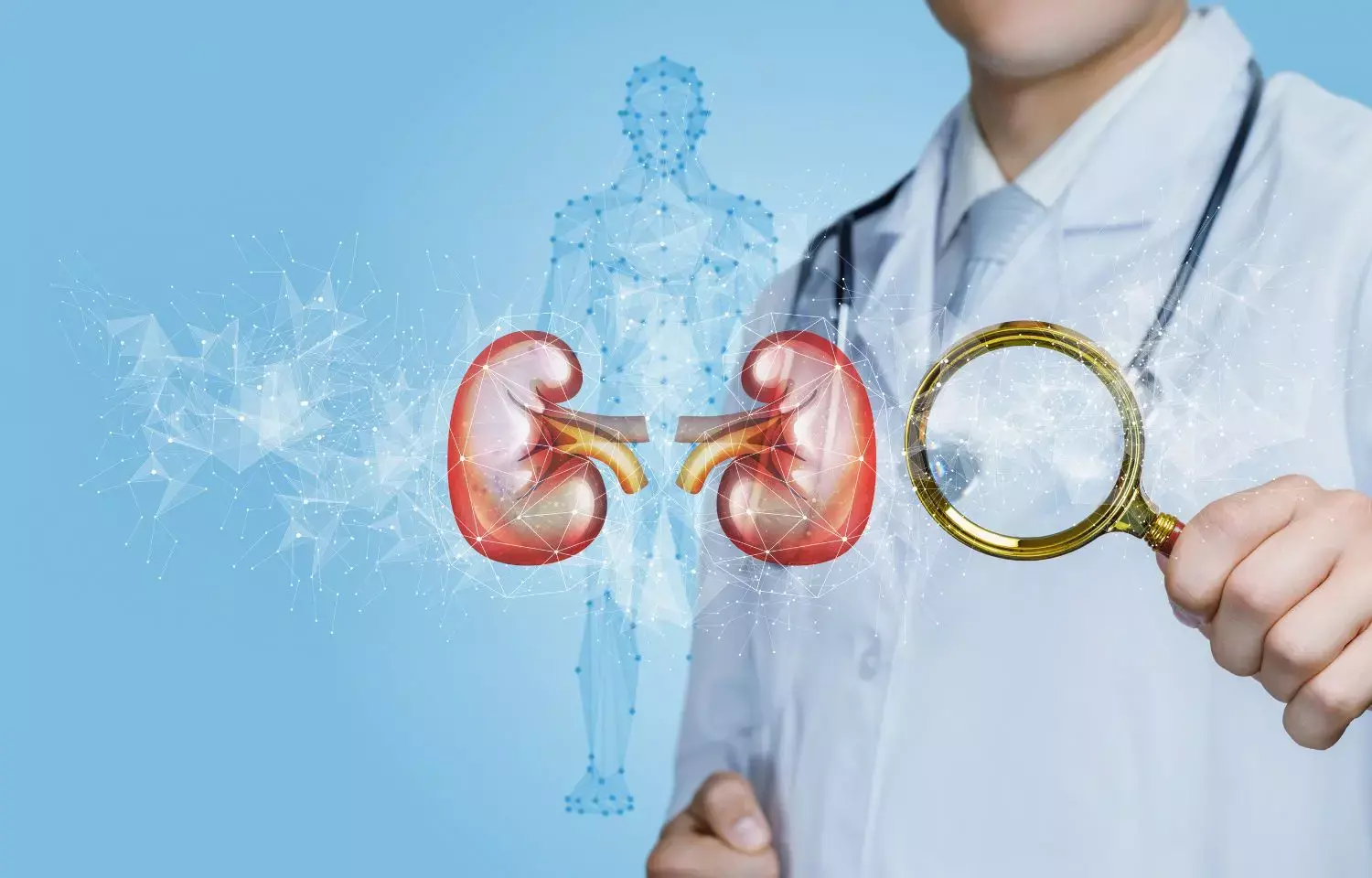- Home
- Medical news & Guidelines
- Anesthesiology
- Cardiology and CTVS
- Critical Care
- Dentistry
- Dermatology
- Diabetes and Endocrinology
- ENT
- Gastroenterology
- Medicine
- Nephrology
- Neurology
- Obstretics-Gynaecology
- Oncology
- Ophthalmology
- Orthopaedics
- Pediatrics-Neonatology
- Psychiatry
- Pulmonology
- Radiology
- Surgery
- Urology
- Laboratory Medicine
- Diet
- Nursing
- Paramedical
- Physiotherapy
- Health news
- Fact Check
- Bone Health Fact Check
- Brain Health Fact Check
- Cancer Related Fact Check
- Child Care Fact Check
- Dental and oral health fact check
- Diabetes and metabolic health fact check
- Diet and Nutrition Fact Check
- Eye and ENT Care Fact Check
- Fitness fact check
- Gut health fact check
- Heart health fact check
- Kidney health fact check
- Medical education fact check
- Men's health fact check
- Respiratory fact check
- Skin and hair care fact check
- Vaccine and Immunization fact check
- Women's health fact check
- AYUSH
- State News
- Andaman and Nicobar Islands
- Andhra Pradesh
- Arunachal Pradesh
- Assam
- Bihar
- Chandigarh
- Chattisgarh
- Dadra and Nagar Haveli
- Daman and Diu
- Delhi
- Goa
- Gujarat
- Haryana
- Himachal Pradesh
- Jammu & Kashmir
- Jharkhand
- Karnataka
- Kerala
- Ladakh
- Lakshadweep
- Madhya Pradesh
- Maharashtra
- Manipur
- Meghalaya
- Mizoram
- Nagaland
- Odisha
- Puducherry
- Punjab
- Rajasthan
- Sikkim
- Tamil Nadu
- Telangana
- Tripura
- Uttar Pradesh
- Uttrakhand
- West Bengal
- Medical Education
- Industry
Warmer temperatures may negatively impact renal function in heart failure patients: ESC

Spain: In patients with heart failure, a gradual increase in temperature is associated with negative effects on renal function during the summer, states a study published in the International Journal of Cardiology.
Although experts are still concerned about the possible negative impacts of global warming on human health, it is still unknown how rising temperatures may affect physiological homeostasis. There has never been a thorough investigation into how rising temperatures affect renal function in outpatients with heart failure (HF).
"The extent of the decline in renal function in summers varied with temperature fluctuations between summer and the remaining part of the year, perhaps because warmer temperatures caused greater dehydration", added the authors.
The authors of the study focused to ascertain the correlation between the temperature trends from 2002 to 2021 and renal function in patients with heart failure who are receiving outpatient care.
With an average of 14 visits per patient, the study cohort consisted of 2167 HF patients who underwent 25,865 elective visits (interquartile range 7–23). The local municipality provided the temperature information, which was then generated from the Meteocat service. Since 2004 to 2005's temperatures were not available, those years were excluded from the analysis. The researchers gathered all creatinine and estimated glomerular filtration rate (eGFR) measurements of heart failure outpatients tracked at a single tertiary hospital in Spain using electronic medical records. In addition, they determined the average values of creatinine and eGFR for the summer and the remainder of the same year, taking into account each patient and each year. Summer was defined as the period from June to September. A year's worth of temperature data was averaged by the investigators.
Key results of the research:
- From 2,194 patients, 6,307 pairs of average creatinine and eGFR values for the summer and the rest of the year were generated.
- Summertime and year-round temperatures rose gradually but not linearly between 2002 and 2001. Average temperature differences between summer and the rest of the year rose year to year in both absolute and percent terms (r =.149 and r =.144 respectively).
- eGFR was lower overall (65 vs 67 mL/min/1.73 m2; P.001) and creatinine was somewhat higher in the summer than the rest of the year (1.26 vs 1.21 mg/dL) across all years.
- After modifications for factors like age, sex, heart failure treatments, and creatinine outside of summer, absolute and percent change temperatures between summer and the remaining of the year exhibited substantial relationships with absolute and percent change creatinine and eGFR.
The researchers concluded that in this patient population during a 20-year period, variations in temperature between the summer and the rest of the year had an impact on renal function.
REFERENCE
Aimo A, Lupon J, Spitaleri G, Domingo M, Codina P, Santiago-Vacas E, Cediel G, Zamora E, Troya M, Santesmases J, Romero-Gonzalez GA, Nunez J, Martini N, Emdin M, Bayes-Genis A. Global warming, renal function and heart failure over 20 years. Int J Cardiol. 2022 Oct 15;365:100-105. doi: 10.1016/j.ijcard.2022.07.043. Epub 2022 Aug 1. PMID: 35926642.
Dr Kamal Kant Kohli-MBBS, DTCD- a chest specialist with more than 30 years of practice and a flair for writing clinical articles, Dr Kamal Kant Kohli joined Medical Dialogues as a Chief Editor of Medical News. Besides writing articles, as an editor, he proofreads and verifies all the medical content published on Medical Dialogues including those coming from journals, studies,medical conferences,guidelines etc. Email: drkohli@medicaldialogues.in. Contact no. 011-43720751


